Companies put a lot of money, time, and hard work into training their employees. So it’s completely natural for them to want a good return on their investment.
But when Reddit user RevolutionFriendly56 and their colleagues learned that they will need to take a test to see how they measure up against the industry, they knew it was not going to be great.
The standardized assessment was far too simple to account for the complex nature of their work and couldn’t paint the complete picture. However, management wouldn’t budge and they had to do it.
Only, the workers devised and, most importantly, pulled off a smart malicious compliance plan.
This HR specialist thought it would be a good idea to measure how good the company’s employees are with a standardized industry test

Image credits: Amy Hirschi
But the idea quickly turned against them
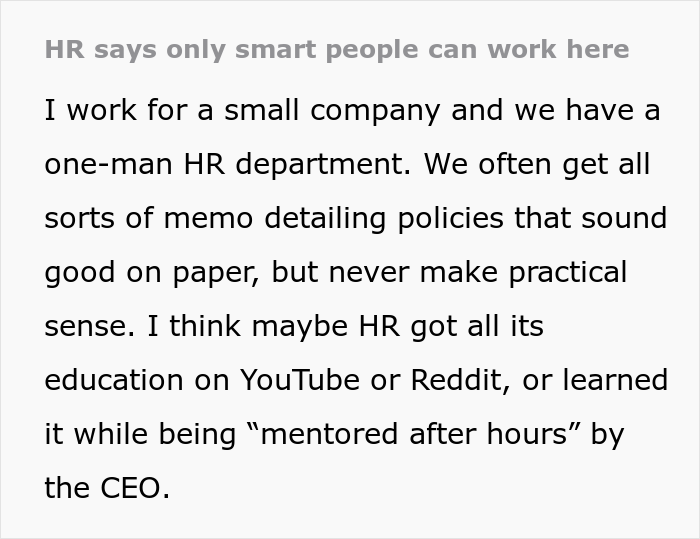
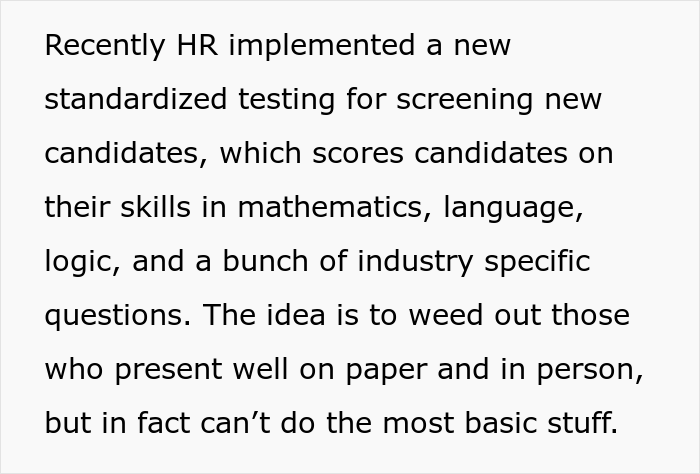





Image credits: fauxels


Image credits: RevolutionFriendly56
Jörgen Sandberg, Professor of Management and Organization at UQ Business School and Warwick Business School, UK, said that when you ask HR managers what makes a person competent, they often respond with a list of skills. Can someone do this job? Certainly, if she can do X, Y, and Z. How has she performed in it? Very well, actually, because her language is fluent, and she’s comfortable with fluid dynamics. The attribute list also finds its way into training programs, which are designed to help employees hone their existing skills and acquire new ones.
But, as Sandberg pointed out in Harvard Business Review, frontline managers, similar to RevolutionFriendly56 and their colleagues, instinctively feel that competence is something more than a list of attributes.
“They sense that a person’s way of seeing work is just as important; competent workers have a particular vision of what their work is and why it is that way,” Sandberg explained. “And because they know that a person’s competence is not easily reduced to a standardized checklist of skills, frontline managers find the recruitment process difficult and are often dismissive of HR-inspired training programs.”
A study Sandberg conducted with a group of 50 testing engineers at the Volvo Car Corporation in Sweden revealed a wide variation in views about the skills that a good testing engineer needs. “Although members of the group generally agreed on who were the best engineers, they differed on why they were the best. Those differences, it seems, depended on how people understood the job,” the professor said, highlighting the subjective variance that comes with evaluating performance.
“Strikingly, all the subgroups agreed that the customer optimizers were the most effective at their work, and all thought that the sequential optimizers were the least capable. But the reasons given for these assessments differed, depending on how an individual defined the job.
“To identify how group members interpreted competence at work, I asked them to describe the qualities of a competent testing engineer and to explain their understanding of testing and development. Although there was some (but not unanimous) agreement on what kinds of skills were needed for competence, the descriptions of the skills varied widely and stemmed directly from the differences in the ways people defined the job,” Sandberg said. “I identified three subgroups of employees, each with a distinct job definition, work focus, and list of preferred skills.”
Those were sequential optimizers, interactive optimizers, and customer optimizers.
“These findings reveal the origins of many failures in corporate recruitment and training,” the professor noted. “If it’s this hard for a small group of technical people to agree on what makes them successful, how can we expect HR professionals to do any better, especially for jobs involving less repetitive and routine tasks? And if people don’t recognize or value the attributes that really determine success, how easy will it be for them to acquire those attributes?”
But maybe the test made RevolutionFriendly56’s HR get the message?
People were happy to hear that this malicious compliance ended the way it did
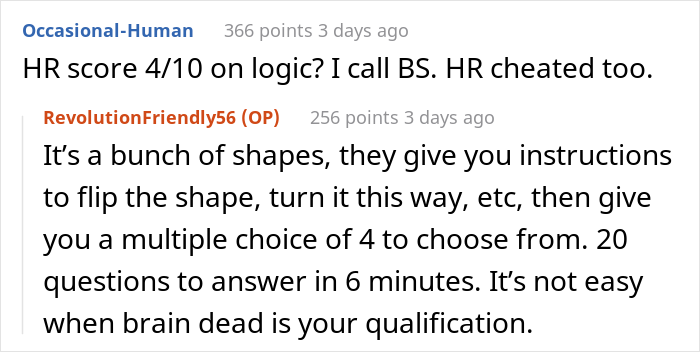








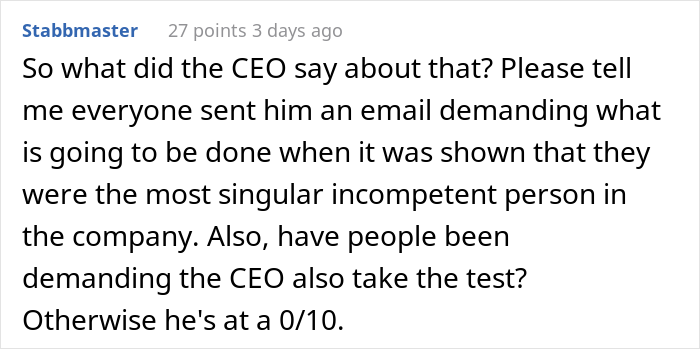
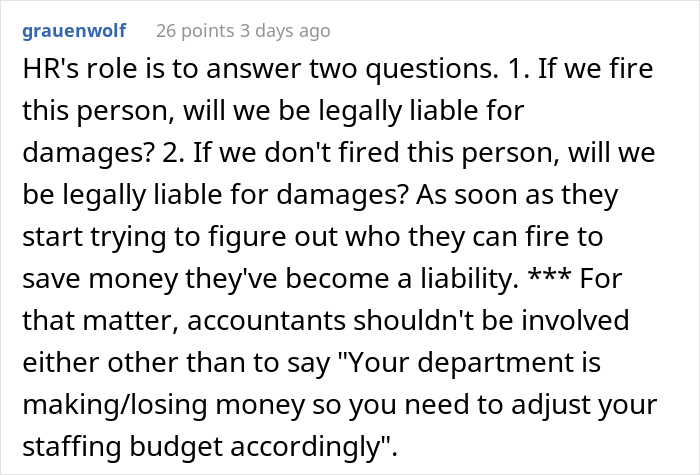



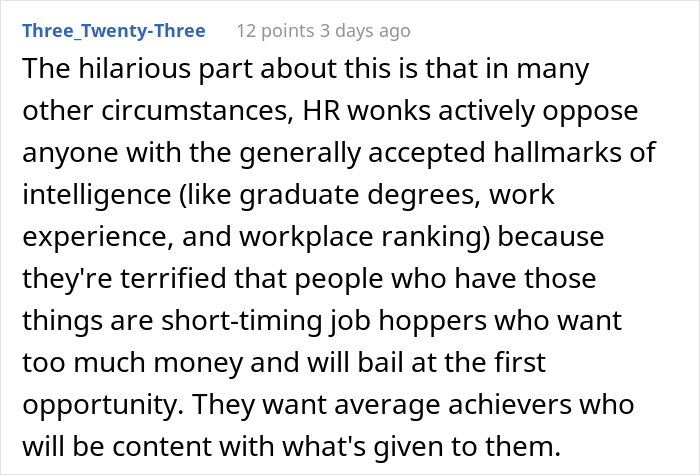
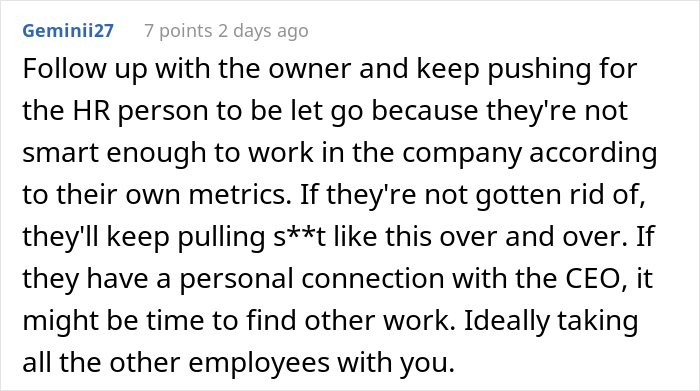
 Follow Us
Follow Us





